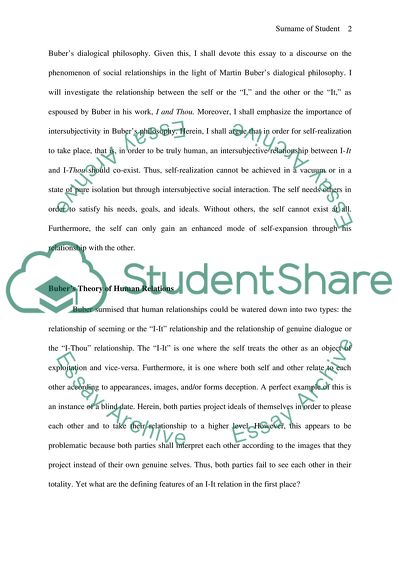Cite this document
(“Philosophy - Martin Buber Essay Example | Topics and Well Written Essays - 2250 words”, n.d.)
Retrieved from https://studentshare.org/miscellaneous/1577055-philosophy-martin-buber
Retrieved from https://studentshare.org/miscellaneous/1577055-philosophy-martin-buber
(Philosophy - Martin Buber Essay Example | Topics and Well Written Essays - 2250 Words)
https://studentshare.org/miscellaneous/1577055-philosophy-martin-buber.
https://studentshare.org/miscellaneous/1577055-philosophy-martin-buber.
“Philosophy - Martin Buber Essay Example | Topics and Well Written Essays - 2250 Words”, n.d. https://studentshare.org/miscellaneous/1577055-philosophy-martin-buber.


